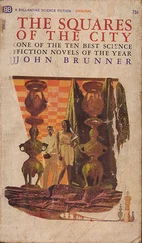O'Henry - The Voice of the City
Здесь есть возможность читать онлайн «O'Henry - The Voice of the City» весь текст электронной книги совершенно бесплатно (целиком полную версию без сокращений). В некоторых случаях можно слушать аудио, скачать через торрент в формате fb2 и присутствует краткое содержание. Жанр: Классическая проза, Юмористическая проза, на английском языке. Описание произведения, (предисловие) а так же отзывы посетителей доступны на портале библиотеки ЛибКат.
- Название:The Voice of the City
- Автор:
- Жанр:
- Год:неизвестен
- ISBN:нет данных
- Рейтинг книги:5 / 5. Голосов: 1
-
Избранное:Добавить в избранное
- Отзывы:
-
Ваша оценка:
- 100
- 1
- 2
- 3
- 4
- 5
The Voice of the City: краткое содержание, описание и аннотация
Предлагаем к чтению аннотацию, описание, краткое содержание или предисловие (зависит от того, что написал сам автор книги «The Voice of the City»). Если вы не нашли необходимую информацию о книге — напишите в комментариях, мы постараемся отыскать её.
The Voice of the City — читать онлайн бесплатно полную книгу (весь текст) целиком
Ниже представлен текст книги, разбитый по страницам. Система сохранения места последней прочитанной страницы, позволяет с удобством читать онлайн бесплатно книгу «The Voice of the City», без необходимости каждый раз заново искать на чём Вы остановились. Поставьте закладку, и сможете в любой момент перейти на страницу, на которой закончили чтение.
Интервал:
Закладка:
There remained to her but one thing -a life of brilliant, but irremediable error. Vermont was a shrine that she never would dare to approach again. But she would not sink -there were great and compelling ones in history upon whom she would model her meteoric career -Camille, Lola Montez, Royal Mary, Zaza -such a name as one of these would that of Medora Martin be to future generations
For two days Medora kept her room. On the third she opened a magazine at the portrait of the King of Belgium, and laughed sardonically. If that far-famed breaker of women's hearts should cross her path, he would have to bow before her cold and imperious beauty. She would not spare the old or the young. All America -all Europe should do homage to her sinister, but compelling charm.
As yet she could not bear to think of the life she had once desired -a peaceful one in the shadow of the Green Mountains with Beriah at her side, and orders for expensive oil paintings coming in by each mail from New York. Her one fatal misstep had shattered that dream.
On the fourth day Medora powdered her face and rouged her lips. Once she had seen Carter in "Zaza." She stood before the mirror in a reckless attitude and cried: "Zut! zut!" She rhymed it with "nut," but with the lawless word Harmony seemed to pass away forever. The Vortex had her. She belonged to Bohemia for evermore. And never would Beriah --
The door opened and Beriah walked in.
"'Dory," said he, "what's all that chalk and pink stuff on your face, honey?
Medora extended an arm.
"Too late," she said, solemnly. The die is cast. I belong in another world. Curse me if you will -it is your right. Go, and leave me in the path I have chosen. Bid them all at home never to mention my name again. And sometimes, Beriah, pray for me when I am revelling in the gaudy, but hollow, pleasures of Bohemia."
"Get a towel, 'Dory," said Beriah, "and wipe that paint off your face. I came as soon as I got your letter. Them pictures of yours ain't amounting to anything. I've got tickets for both of us back on the evening train. Hurry and get your things in your trunk."
"Fate was too strong for me, Beriah. Go while I am strong to bear it."
"How do you fold this easel, 'Dory? -now begin to pack, so we have time to eat before train time. The maples is all out in full-grown leaves, 'Dory -you just ought to see 'em!
"Not this early, Beriah?
"You ought to see 'em, 'Dory; they're like an ocean of green in the morning sunlight."
"Oh, Beriah!"
On the train she said to him suddenly:
"I wonder why you came when you got my letter."
"Oh, shucks! " said Beriah. "Did you think you could fool me? How could you be run away to that Bohemia country like you said when your letter was postmarked New York as plain as day?"
A PHILISTINE IN BOHEMIA
George Washington, with his right arm upraised, sits his iron horse at the lower corner of Union Square, forever signaling the Broadway cars to stop as they round the curve into Fourteenth Street. But the cars buzz on, heedless, as they do at the beck of a private citizen, and the great General must feel, unless his nerves are iron, that rapid transit gloria mundi.
Should the General raise his left hand as he has raised his right it would point to a quarter of the city that forms a haven for the oppressed and suppressed of foreign lands. In the cause of national or personal freedom they have found a refuge here, and the patriot who made it for them sits his steed, overlooking their district, while he listens through his left car to vaudeville that caricatures the posterity of his proteges. Italy, Poland, the former Spanish possessions and the polyglot tribes of Austria-Hungary have spilled here a thick lather of their effervescent sons. In the eccentric cafes and lodginghouses of the vicinity they hover over their native wines and political secrets. The colony changes with much frequency. Faces disappear from the haunts to be replaced by others. Whither do these uneasy birds flit? For half of the answer observe carefully the suave foreign air and foreign courtesy of the next waiter who serves your table d'hote. For the other half, perhaps if the barber shops had tongues (and who will dispute it?) they could tell their share.
Titles are as plentiful as finger rings among these transitory exiles. For lack of proper exploitation a stock of titled goods large enough to supply the trade of upper Fifth Avenue is here condemned to a mere pushcart traffic. The new-world landlords who entertain these offshoots of nobility are not dazzled by coronets and crests. They have doughnuts to sell instead of daughters. With them it is a serious matter of trading in flour and sugar instead of pearl powder and bonbons.
These assertions are deemed fitting as an introduction to the tale, which is of plebeians and contains no one with even the ghost of a title.
Katy Dempsey's mother kept a furnished-room house in this oasis of the aliens. The business was not profitable. If the two scraped together enough to meet the landlord's agent on rent day and negotiate for the ingredients of a daily Irish stew they called it success. Often the stew lacked both meat and potatoes. Sometimes it became as bad as consomme' with music.
In this mouldy old house Katy waxed plump and pert and wholesome and as beautiful and freckled as a tiger lily. She was the good fairy who was guilty of placing the damp clean towels and cracked pitchers of freshly laundered Croton in the lodgers' rooms.
You are informed (by virtue of the privileges of astronomical discovery) that the star lodger's name was Mr. Brunelli. His wearing a yellow tie and paying his rent promptly distinguished him from the other lodgers. His raiment was splendid, his complexion olive, his, mustache fierce, his manners a prince's, his rings and pins as magnificent as those of a traveling dentist.
He had breakfast served in his room, and he ate it in a red dressing gown with green tassels. He left the house at noon and returned at midnight. Those were mysterious hours, but there was nothing myterious about Mrs. Dempsey's lodgers except the things that were not mysterious. One of Mr. Kipling's poems is addressed to "Ye who hold the unwritten clue to all save all unwritten thing." The same "readers" are invited to tackle the foregoing assertion.
Mr. Brunelli, being impressionable and a Latin, fell to conjugating the verb "amare," with Katy in the objective case, though not because of antipathy. She talked it over with her mother.
"Sure, I like him," said Katy. "He's more politeness than twinty candidates for Alderman, and lie makes me feel like a queen whin he walks at me side. But what is he, I dinno? I've me suspicions. The marnin'll coom whin he'll throt out the picture av his baronial halls and ax to have the week's rint hung up in the ice chist along wid all the rist of 'em."
"'Tis true," admitted Mrs. Dempsey, "that he seems to be a sort iv a Dago, and too coolchured in his spache for a rale gentleman. But ye may be misjudgin' him. Ye should niver suspect any wan of bein' of noble descint that pays cash and pathronizes the laundry rig'lar."
"He's the same tbricks of spakin' and blarneyin' wid his hands," sighed Katy, "as the Frinch nobleman at Mrs. Toole's that ran away wid Mr. Toole's Sunday pants and left the photograph of the Bastile, his grandfather's chat-taw, as security for tin weeks' rint."
Mr. Brunelli continued his calorific wooing. Katy continued to hesitate. One day he asked her out to dine and she felt that a denouement was in the air. While they are on their way, with Katy in her best muslin, you must take as an entr'acte a brief peep at New York's Bohemia.
'Tonio's restaurant is in Bohemia. The very location of it is secret. If you wish to know where it is ask the first person you meet. He will tell you in a whisper. 'Tonio discountenances custom; he keeps his house-front black and forbidding; he gives you a pretty bad dinner; he locks his door at the dining hour; but he knows spaghetti as the boarding-house knows cold veal; and -he has deposited many dollars in a certain Banco di -something with many gold vowels in the name on its windows.
Читать дальшеИнтервал:
Закладка:
Похожие книги на «The Voice of the City»
Представляем Вашему вниманию похожие книги на «The Voice of the City» списком для выбора. Мы отобрали схожую по названию и смыслу литературу в надежде предоставить читателям больше вариантов отыскать новые, интересные, ещё непрочитанные произведения.
Обсуждение, отзывы о книге «The Voice of the City» и просто собственные мнения читателей. Оставьте ваши комментарии, напишите, что Вы думаете о произведении, его смысле или главных героях. Укажите что конкретно понравилось, а что нет, и почему Вы так считаете.











